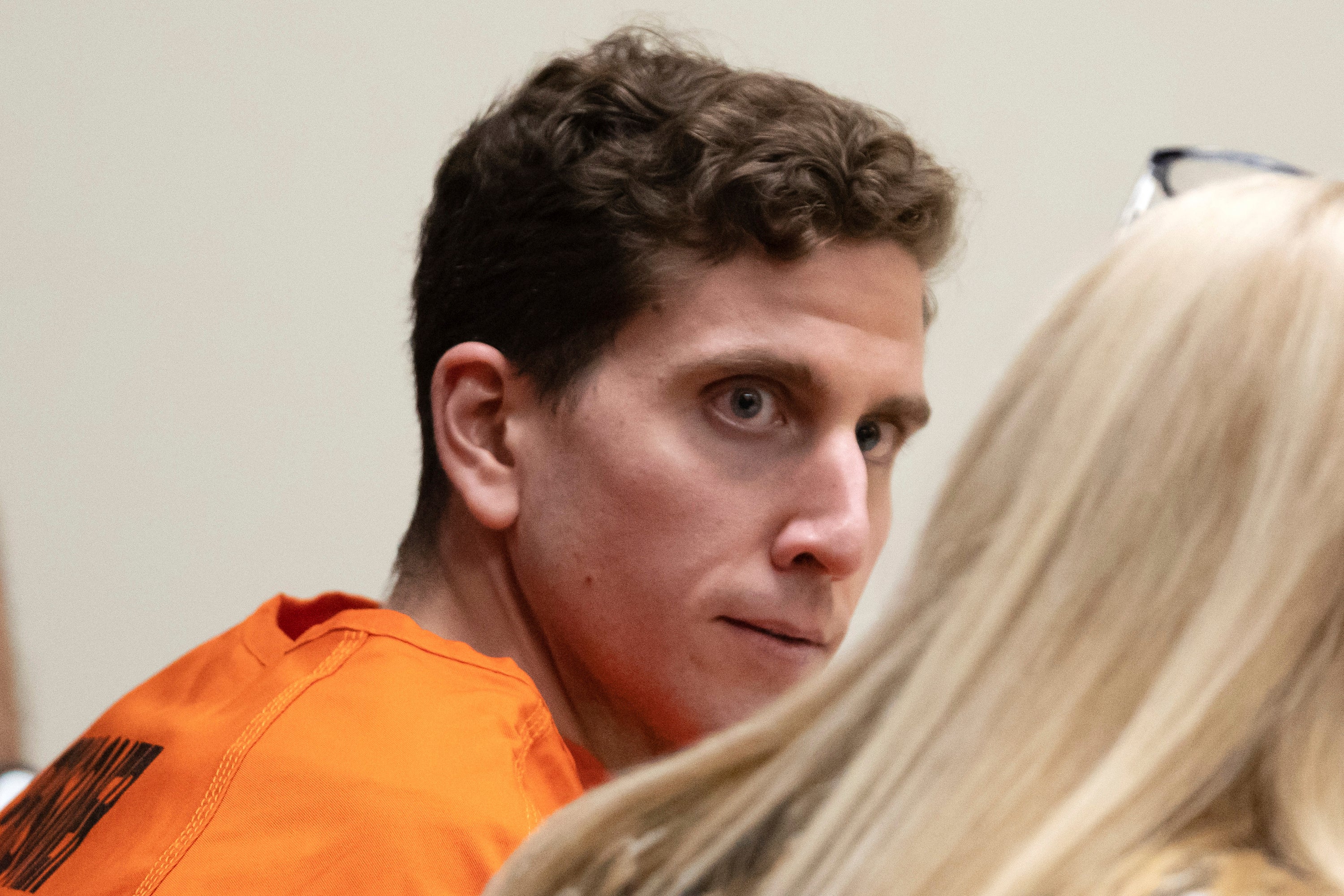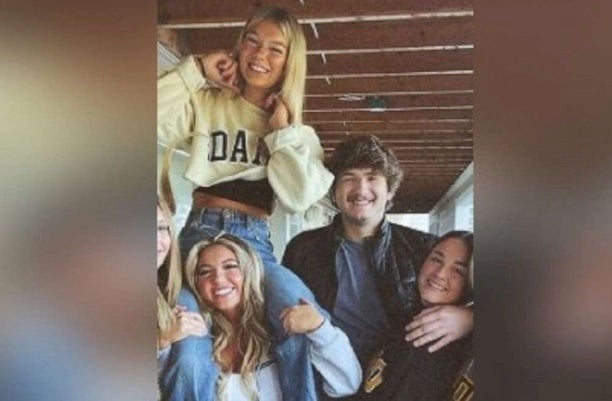Bryan Kohberger is believed to have followed the three female slain University of Idaho victims on Instagram
Officials unlikely to address the speculation due to a gag order, preventing law enforcement officials and people linked to the case from speaking out
Bryan Kohberger is believed to have followed all three slain female University of Idaho victims on Instagram and “repeatedly” messaged one of them prior to the brutal stabbings, according to a report.
An investigator familiar with the case told People that the 28-year-old criminology PhD student followed the accounts of Madison Mogen, Kaylee Goncalves and Xana Kernodle but neither of them followed him back.
Then, in late-October – around two weeks before the 13 November slayings – Mr Kohberger allegedly messaged one of the victims “repeatedly” on the social media platform, the source said.
It is unclear which of the three female students was the recipient or if she even saw the messages.
However, the source said that the victim did not respond to Mr Kohberger’s messages.
“He slid into one of the girls’ DMs several times but she didn’t respond,” the investigator said.
“Basically, it was just him saying, ‘Hey, how are you?’ But he did it again and again.”
As well as the investigator’s version of events, the outlet also cited its own review of a now-deleted account believed to belong to the accused killer.
This account has not been confirmed as belonging to the suspect. In the immediate aftermath of Mr Kohberger’s arrest, several fake social media accounts sprung up under his name.
However, for the first time, this offers a possible connection between the victims and the suspect who is accused of breaking into an off-campus home in Moscow, Idaho, in the early hours of 13 November and stabbing the three women and Kernodle’s boyfriend Ethan Chapin to death.
A former employee at the Mad Greek restaurant, where Mogen and Kernodle worked, also told People that Mr Kohberger had visited the eatery in the weeks before the murders.
The suspect, who is vegan, popped in at least twice for some vegan pizza, the employee said.

An investigator with knowledge of the case told People that investigators knew about the visits to the restaurant, and had seized footage from it and interviewed both the staff and owners.
However, this was almost instantly refuted by the owner of the Mad Greek, who denied Mr Kohberger had ever been there. Jackie Fischer slammed the article as “completely fabricated information” in a Facebook post on Friday and urged the public and the media to “please allow us to grieve the loss of our friends and co-worker”.
Officials have not addressed the speculation about the restaurant visit or the Instagram account and are unlikely to do so, due to a gag order preventing law enforcement officials and the defence and prosecution teams from speaking out about the high-profile case.
The gag order, which was issued as Mr Kohberger was being extradited from Pennsylvania to Moscow to face charges, was broadly expanded last week to also ban any attorneys representing survivors, witnesses or the victims’ family members from talking or writing about the case.
News organisations are asking a judge to pull back the scope of the gag order, saying that media access to officials can provide the public with important context in such high-profile criminal cases.
The affidavit, released earlier this month, gave new details about what led investigators to the suspect but still offered no connection between the victims and Mr Kohberger.
The bombshell documents did reveal that investigators believe Mr Kohberger may have stalked the student home in the run-up to the mass murder, with cellphone data placing him around the property 12 times before 13 November.
At the time of the murders, investigators believe Mr Kohberger turned his cellphone off in order to try to avoid detection.
However, cellphone data places him close to the home on King Road at around 9am on 13 November – suggesting that he returned to the scene of the crime just hours after allegedly murdering the four victims at around 4am, the affidavit reveals.

As well as cellphone data, the affidavit reveals that other evidence also led them to arrest Mr Kohberger for the student murders.
Police said that his DNA was found on a knife sheath left behind at the scene by the killer and his white Hyundai Elantra was caught on surveillance footage at the crime scene at the time of the murders, the affidavit reveals.
One of the victims’ surviving roommates was also able to partially describe the killer to investigators after she came face to face with him in the aftermath of the murders.
Last week, police in Washington unsealed search warrants for Mr Kohberger’s apartment in Pullman and his office at Washington State University (WSU).
The searches were carried out on 30 December – the same day that he was taken into police custody in Pennsylvania.
The unsealed documents reveal that investigators seized a string of items from his home including possible human and animal hair strands, a disposable glove, items with red and brown stains and a computer.
No items were seized from his office which he shared with other PhD students.
The murder weapon – a fixed-blade knife – was not recovered during the searches and it is still unclear where it may be.
No motive has been given for the attack.
Mr Kohberger is next scheduled to appear in court on 26 June for his preliminary hearing.
The entire week has been set aside for the hearing – when evidence of the case against Mr Kohberger will be laid out for the first time in court and Mr Kohberger is likely to enter a plea on the charges.
Until then, Mr Kohberger will be held behind bars at Latah County Jail after he was ordered to be held on no bail for a second time.
As a criminal justice PhD student at WSU, he lived just 15 minutes from the victims over the Idaho-Washington border in Pullman. He had moved there from Pennsylvania and began his studies there in August, having just completed his first semester begore his arrest.
Before this, he studied criminology at DeSales University – first as an undergraduate and then finishing his graduate studies in June 2022.
While there, he studied under renowned forensic psychologist Katherine Ramsland who interviewed the BTK serial killer and co-wrote the book Confession of a Serial Killer: The Untold Story of Dennis Rader, the BTK Killer with him.
He also carried out a research project “to understand how emotions and psychological traits influence decision-making when committing a crime”.
Now, he is facing life in prison or the death penalty for the murders that have rocked the small college town of Moscow and hit headlines around the globe.




